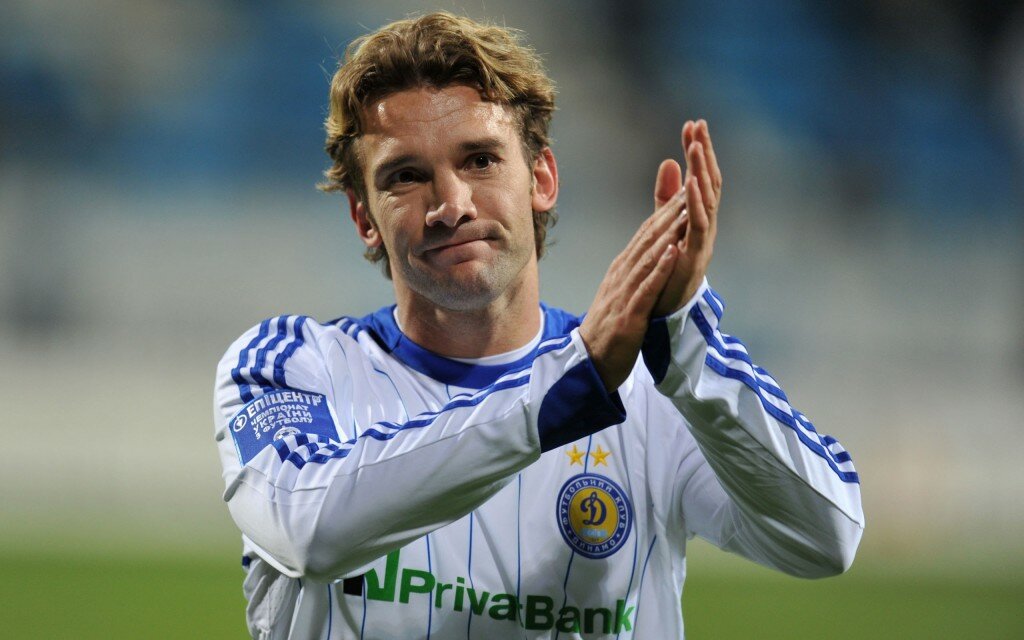 If you’re thinking about strikers in the 90’s – and, why would you want to look at any other decade – you’d struggle to find a pair that better epitomise the best aspects of the front two than Dynamo Kyiv’s Andriy Shevchenko and Serhiy Rebrov.
If you’re thinking about strikers in the 90’s – and, why would you want to look at any other decade – you’d struggle to find a pair that better epitomise the best aspects of the front two than Dynamo Kyiv’s Andriy Shevchenko and Serhiy Rebrov.
Most of us discovered them via Dynamo’s Champions League exploits. In the 1997-98 tournament, Dynamo topped a group featuring PSV, Newcastle and Barcelona, who finished bottom.
90’s FLASHBACK: remember when Tino Asprilla learned how to fly and Keith Gillespie did a really good Ryan Giggs impersonation – it was this tournament.
Of course, back in the olden days (the 90’s) you went straight from the group stage to the QFs, and finishing second didn’t guarantee you a place in the last eight, you had to be one of the top two (of six) runners up. For this reason, Dynamo had the misfortune of coming up against a rock hard Juventus side in the last eight (Zidane, Inzaghi, Deshamps, DelPiero, Davids etc.) that had finished second to Manchester United in the group stage. That’s how good United were back then. To think that in the 90’s we were moaning about how the Champions League had diluted the European Cup.
Anyway, Juventus beat Dynamo and eventually lost in the final to Real Madrid. But, Dynamo, and their two sparkling forwards in particular, had put down a significant marker. Rebrov netted six times and Shevchenko hit five. Bear in mind there was only one group stage, so Dynamo only played eight times in the full tournament. Eleven goals in eight games is a pretty decent return from any front two. Against the best teams in Europe, it’s shit hot.
Proving their success was no fluke, the following season they went further, heaping misery on Arsenal in the group stage, and then knocking out Real Madrid, the reigning champions, in the quarters. They were now serious contenders to win the thing, and at one stage led Bayern Munich 3-1 in the first leg of their semi-final before the German club recovered, eventually winning 4-3 on aggregate. This time it was Shevchenko who topped the goal scorers’ chart with eight, while Rebrov chipped in with four. Everyone knew that this pair was for real.
Unfortunately for Dynamo, the 1998-99 season was the last the pair spent together. They had attracted too much attention for Europe’s wealthier clubs to ignore them any longer. But, the risk for any buyer was whether or not they could deliver the same performances as individuals. They were an item and it was hard to spot the dominant personality in their relationship. Both scored goals and provided chances for the other, and there have been plenty of examples of goal scorers struggling to replicate prolific form in different systems. Shevchenko was the first to find out if he could make it on his own.
With hindsight it’s easy to say Shevchenko was the superior talent of the two, but the speed at which he adapted to Serie A was phenomenal. He scored 24 league goals in first season, and repeated that tally the following year. Meanwhile, Rebrov remained in Kyiv for one more season, but far from looking lost without his soulmate, he plundered another thirty goals in all competitions, providing plenty of evidence that he too was ready for a new challenge. Enter Tottenham, and we all know how that worked out, but at the time there was little to suggest this was a risky punt. Rebrov’s career never fully recovered from his loss of form in England. Even so, his contribution to Dynamo’s great side of the late 90’s should not be dismissed.
Obviously Shevchenko was the better player, but few pairings have exploded into the Champions League with such devastating effect, tormenting the best defences in Europe. It was just a lot of fun to see the establishment rocked back on its heels, even if only for a short while.
Football can be pointlessly sentimental, but it’s fitting that both players ended up returning to Dynamo towards the end of their careers, although not at the same time. Rebrov returned from 2005 to 2008, while Shevchenko went back in 2009 and remained until his retirement following the European Championships in his native Ukraine last summer. Shevchenko won the Champions League and Serie A with Milan, but after losing his way at Chelsea, he admitted Ukraine was tugging at his heart strings, “When I agreed to leave [Chelsea], I had a choice of five or six big clubs but I didn’t really think seriously about them because I’d already decided the journey that began in Kiev would end in Kiev.”

